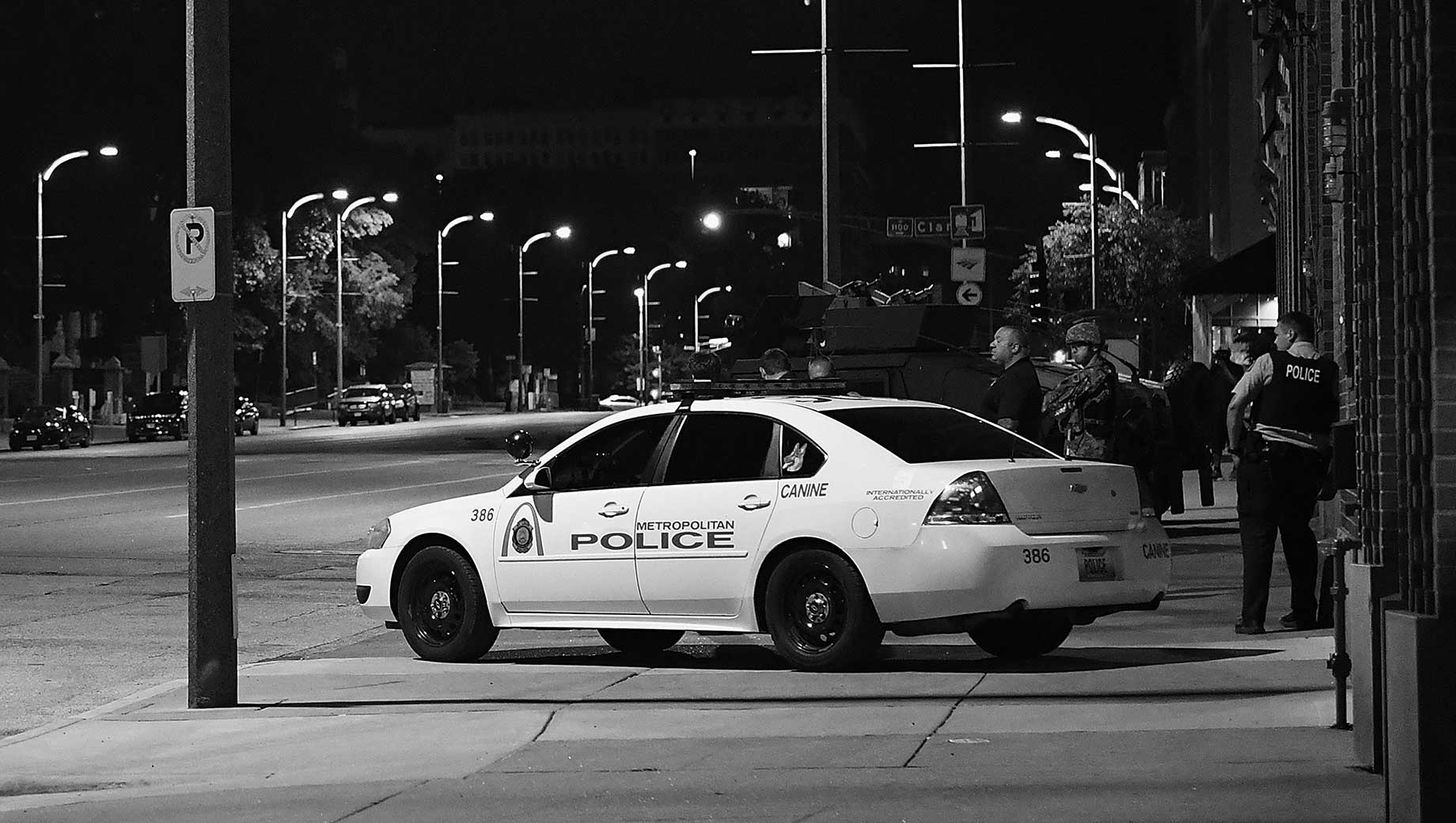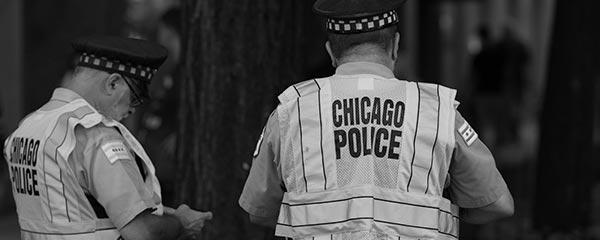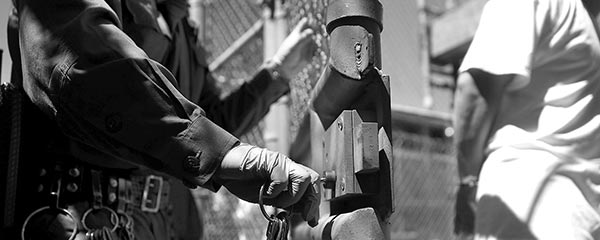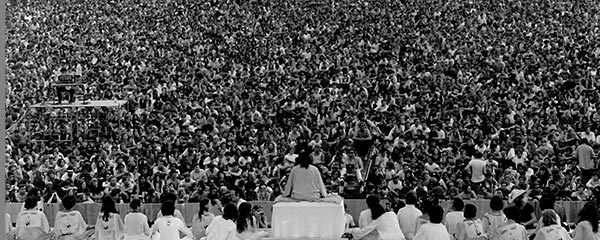In the aftermath of George Floyd's death while in police custody in Minneapolis and widespread protests against police brutality across the U.S., Americans are reflecting on the equity of current law enforcement practices.
Crucial voices in this national conversation are residents of fragile communities, who report being disproportionately affected by systemic inequalities in the U.S. criminal justice system -- 43% say they personally know "some" (31%) or "a lot" of people (12%) who were treated unfairly by the police.
Fragile communities are geographic areas with concentrated poverty and limited access to educational and economic opportunities as determined by U.S. Census data. These communities are characterized by high proportions of residents struggling in their daily lives and possessing limited opportunities for social mobility based on a lack of high-quality educational opportunities and reliable pathways to good jobs. We refer to such areas as "fragile communities" -- not because their residents lack resilience, but because so many live their lives close to the edge of financial disaster.
In light of recent events, the (CAO) and ���۴�ýare releasing early insights on fragile community residents' experiences with and perceptions of their local police. These data are based on the third representative survey of fragile community residents conducted November 2019 to January 2020 in partnership with the Thurgood Marshall College Fund, the Charles Koch Foundation and Koch Industries. The full insights will be available in August 2020 in CAO's third The State of Opportunity in America report, and the data for all three annual reports will be available on CAO's website for public use.
Black Residents Most Likely to Know People Mistreated by Police
While America's low-income communities as a whole are disproportionately fined, arrested and incarcerated by the police, racial disparities also exist within fragile community residents' lived experiences. Black residents are about twice as likely as white residents in those same communities to say they know "some" or "a lot" of people who were treated unfairly by the police, and they are more than twice as likely as white residents to say they know some or a lot of people who were unfairly sent to jail.
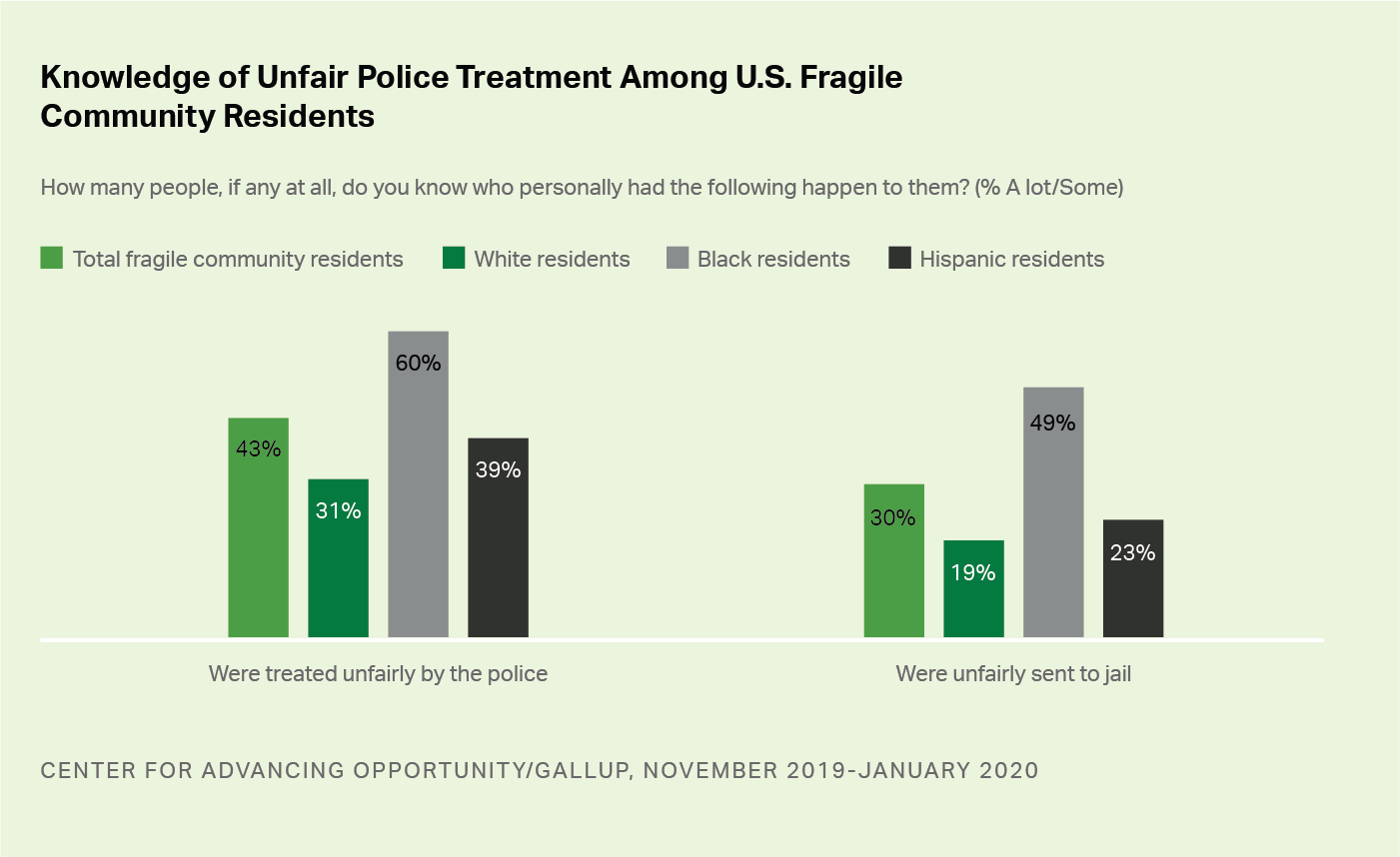
Bar graph. The percentages of residents of U.S. fragile communities who known a lot or some people who were treated unfairly by the police or unfairly sent to jail. 43% of all residents of these communities know a lot or some people unfairly treated by the police and 30% of all residents of these communities know a lot or some people unfairly sent to jail.
These findings highlight the inequity in policing within these communities -- and the impact of direct and vicarious negative experiences with police have ripple effects for black residents that extend far beyond the criminal justice system. Even simply knowing someone who was treated unfairly can affect many aspects of black residents' lives. When unfair treatment involves police violence, children's school attendance decreases and mental health issues may arise even among those not directly affected.
Impact of Knowing People Who Were Mistreated by Police
The experience of personally knowing people who were treated unfairly by the police affects fragile community residents' views of others, their environment and their individual experiences, including their confidence in the police, their opinions of the area where they live and their perceptions of how they are treated by local police.
Confidence in the police is an important component of building safer communities. Residents of fragile communities who personally know people who were treated unfairly by the police have less overall confidence in the police (47%) compared with those who know "not many" people or "none at all" who were mistreated (83%). Higher confidence can result in better relations between the police and local communities and mutual cooperation.
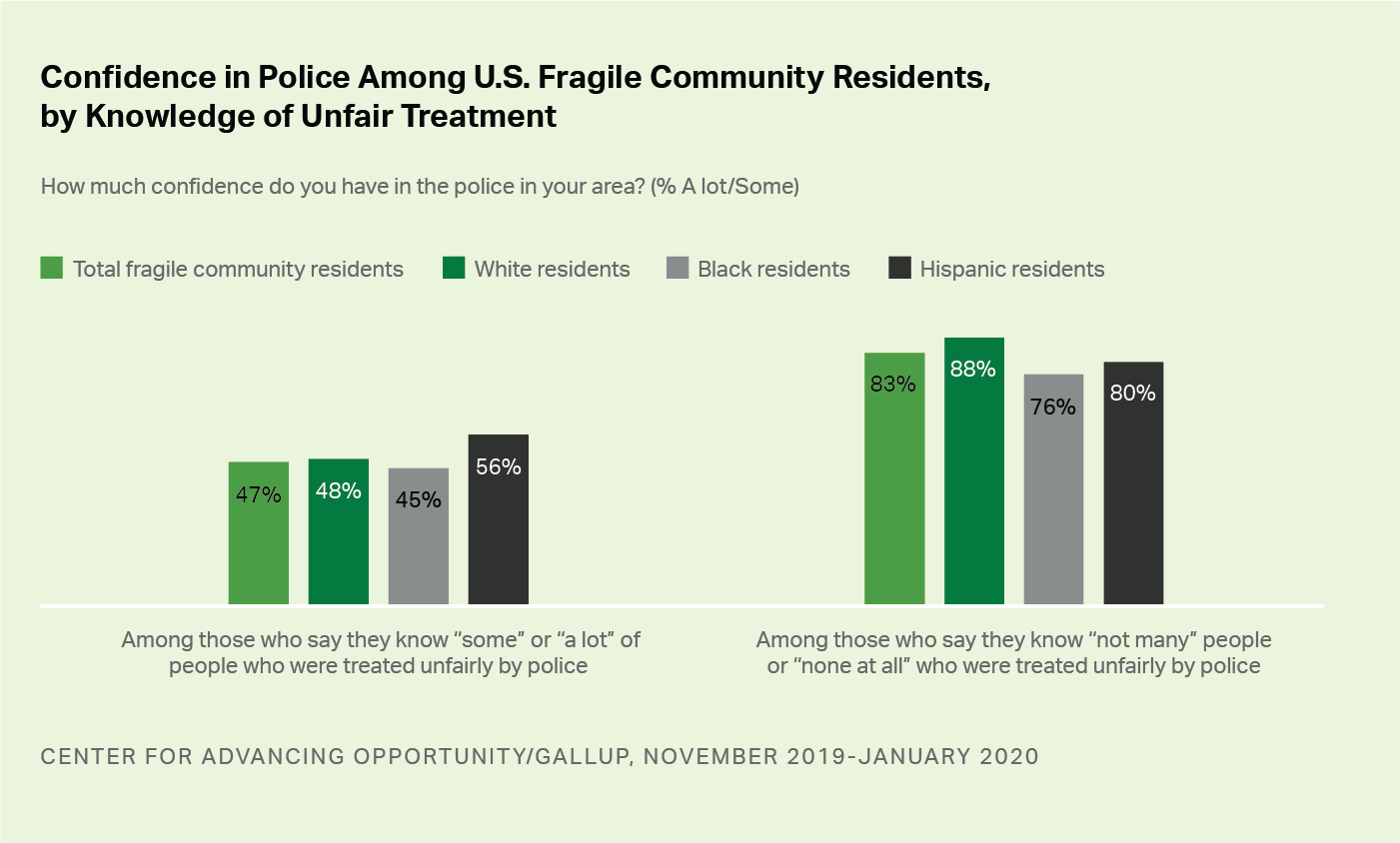
Bar graph. The percentages of residents of U.S. fragile communities who have confidence in the police in their areas. 47% of all residents of these communities know a lot or some people unfairly treated by the police have a lot or some confidence in the police. 83% of all residents of these communities know not many or no people unfairly treated by the police have a lot or some confidence in the police.
Forty-five percent of fragile community residents who know people who were mistreated by the police believe that the area where they live is a good place for minorities -- compared with 65% of those who don't know many or any people mistreated by the police, with similar gaps seen by race/ethnicity. This could be indicative not only of concerns over equitable policing and public safety in neighborhoods but also of wider inequalities related to economic opportunity and education.
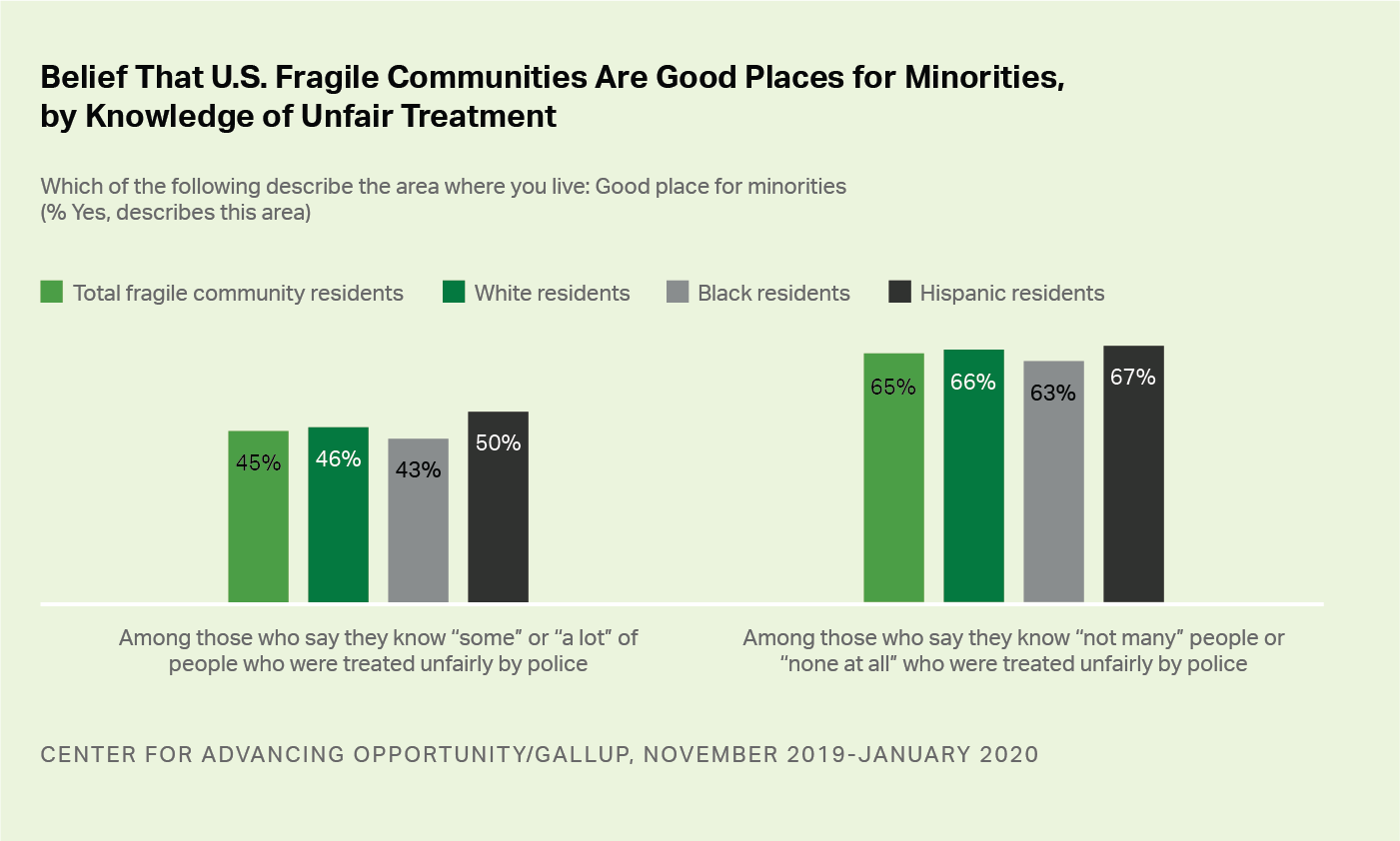
Bar graph. The percentages of residents of U.S. fragile communities who see their communities as good places for minorities. 45% of all residents of these communities know a lot or some people unfairly treated by the police see their areas as good places for minorities. 65% of all residents of these communities who know not many or no people unfairly treated by the police see their areas as good places for minorities.
Fragile community residents' perceptions of how they are treated by the police are strongly related to their experience with personally knowing others who were treated unfairly, with black residents showing the greatest variation. Among black residents who say they know some or a lot of people treated unfairly by the police, 50% think their local police treat people like them "unfairly" or "very unfairly." Conversely, 14% of black residents who know not many people or none at all treated unfairly by the police say the same. In both instances, far lower percentages of white residents say their local police treat them unfairly.
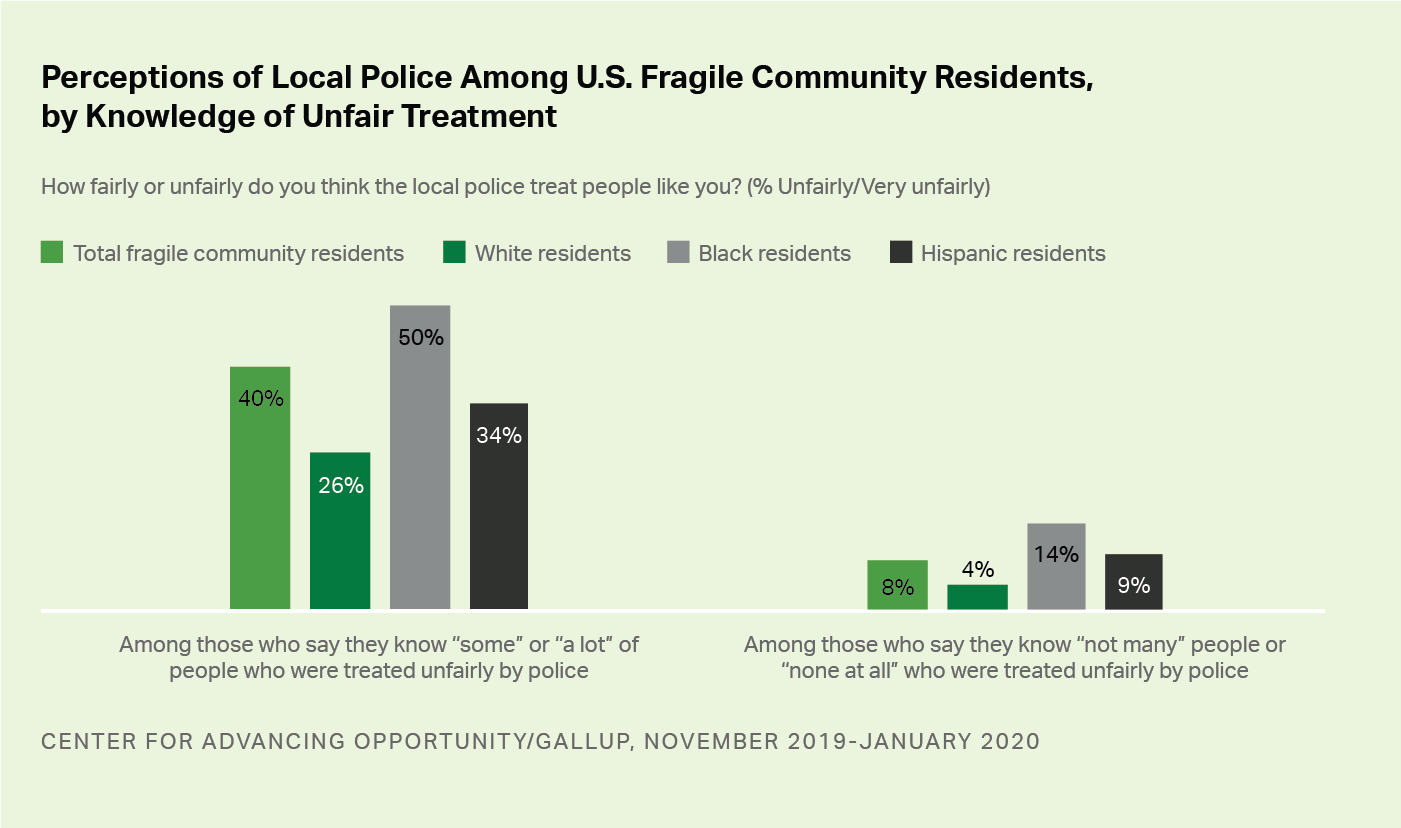
Bar graph. The percentages of residents of U.S. fragile communities who see local police as treating people like themselves fairly. 40% of all residents of these communities who know a lot or some people unfairly treated by the police say people like them are treated fairly by law enforcement. 8% of all residents of these communities who know not many or no people unfairly treated by the police say people like them are treated fairly by law enforcement.
Bottom Line
Amplifying the voices of fragile community residents is crucial during a time when America is reflecting on the equity of its criminal justice system. Inequitable policing affects more than just those who have been treated unfairly. Simply knowing people who have been treated unfairly by the police has far-reaching implications on their overall confidence in the police, their views of their own community and their perceptions of how local police treat people like them.
Fragile community residents' negative experiences with police, whether direct or indirect, are shaping perceptions that feed into the level of respect and good relations between police officers and the communities they serve. Inequitable treatment of low-income communities, and particularly black residents, is not only a criminal justice issue -- it is one that spans all aspects of individuals' and families' lives, from economic opportunity, to physical and mental health, to education.
Listening to the unique experiences and perceptions of fragile community residents will support efforts in building solutions that not only address these systemic inequalities but also lower barriers to opportunities for these residents. At present, the criminal justice system is an area in which there is significant opportunity to build greater trust and better relations between the police and black residents. Equitable reform is essential to giving fragile communities the opportunity and ability to build better lives for themselves and their families.
